Navigating the wilderness can feel like a daunting endeavor, even somewhat intimidating – because it truly is. But did you know that harnessing the benefits of learning bushcraft skills doesn’t only equip you with survival strategies but also opens up an entirely rewarding experience? In this article, we’ll unpack seven fundamental ways learning bushcraft skills can enhance your competence in the wild and potentially transform how you view life’s many adventures.
Ready for a journey beyond limitations and towards embracing an audacious lifestyle? Please, stay with us.
Key Takeaways
- Learning bushcraft skills can improve your ability to survive and thrive in the wilderness.
- These skills include navigation, identifying edible plants, animal tracking, hide-tanning, gardening, tree tapping, and fire building.
- By learning these skills, you can become more self – reliant in adverse situations and increase your awareness of the natural world around you.
- Bushcraft skills also have practical applications beyond survival, such as saving money on groceries and improving overall health through gardening.
Understanding the Basics: Benefits of Learning Bushcraft Skills
Bushcraft skills help us live in nature with only basic gear. These skills include building a fire, finding food, and tracking animals. They also cover trapping game and making shelter.
Learning these survival skills gives you flexibility to apply them in many ways.
Gaining bushcraft knowledge can change your life for the better. It makes you more aware of what is around you. You can depend on yourself even when things get tough. Plus, it’s great for kids! It helps them feel good about themselves and brings them closer to nature while giving their bodies needed exercise.
Not just that, bushcraft involves other handy tricks too! Like tanning hides to lessen waste or gardening to save money and eat healthier food. Whether tapping trees for water or sap or starting a fire for heat – these wilderness techniques go a long way in enhancing self-reliant living.
Detailed Benefits of Learning Bushcraft Skills
Learning bushcraft skills offers numerous benefits, including orienteering for navigation skills, identifying edible plants for sustenance, animal tracking for increased awareness, hide-tanning to minimize waste, gardening for cost savings and health benefits, tree tapping for water and sap, and fire building for survival.
Orienteering for navigation skills
Orienteering gives me important skills in navigation. I walk or run while using a detailed map and sometimes a compass. This helps me get from one point to another. It is like a race where I find my way between checkpoints with only these tools.
I keep getting better at navigating the more I practice orienteering. It is not just a sport but also trains my mind. It teaches me how to solve problems when finding the path or route becomes tough.
Orienteering can be fun but it also makes sure that if ever lost, I can find my way back!
Identifying edible plants for sustenance
Knowing which plants in the wild you can eat is a must. This skill can save your life. Wild plants that are safe to eat can add some thrill to what you eat, if you know how to find them and make sure they’re safe.
You will find 33 common edible wild plants in North America alone! The steps for finding these food sources go like this: see it, pick it with care, get it ready and then enjoy. The more you learn about wild foods, the better off you’ll be on your own! It’s a great way of getting back to the old ways of doing things and becoming one with nature too.
Animal tracking for increased awareness
Animal tracking is a crucial skill for survival enthusiasts like us. By learning to track animals, we can increase our awareness of the environment and gain valuable insights into animal behavior.
It helps us predict and locate the best places to hunt game animals. Skilled trackers use their awareness to better understand and connect with wild animals and nature. Animal tracking is considered a sacred responsibility, as it allows us to appreciate the interconnectedness of all living things.
With excellent tracking skills, we increase our chances of successfully capturing game animals. So let’s embrace this bushcraft technique and enhance our understanding of animal movement patterns while immersing ourselves in nature’s wonders.
Hide-tanning to minimize waste
When learning bushcraft skills, one important technique to consider is hide-tanning. By properly preserving hides, we can minimize waste and make good use of the animal resources available to us.
There are different methods you can explore, such as brain tanning or bark tanning. Brain tanning involves scraping off all the meat and fat from the hide to prevent it from rotting, while bark tanning uses materials like tannin-rich barks and roots for the process.
By learning these techniques, you not only acquire valuable knowledge but also contribute to a more sustainable lifestyle in nature. So let’s dive into the world of hide-tanning and make every part count!
Gardening for cost savings and health benefits
Gardening is an incredible skill to have when it comes to saving money and improving your health. Not only can you grow your own food, but it also has amazing benefits for your heart, weight, sleep, and immune system.
Gardening can even reduce stress and anxiety levels! Community gardens are a great way to improve nutrition and mental health for everyone involved. And if you teach gardening to children, they’ll become sharper and smarter too.
So why not start growing your own food? It’s a cost-effective way to save money on groceries while enjoying all the wonderful health benefits that come with it.
Tree tapping for water and sap
One interesting bushcraft skill is tree tapping, which involves collecting water and sap from trees for various uses. This traditional technique creates an open wound in a tree trunk to extract watery sap that can be consumed.
Maple trees are commonly tapped for their sap, which can then be used to make delicious maple syrup. However, other types of trees like birch, walnut, and sycamore can also be tapped to collect drinkable sap.
Learning this skill allows you to harness the natural resources around you and explore alternative uses for tree sap beyond just making syrup.
Fire building for survival
Fire building is an essential skill in bushcraft. It can be a lifesaver in survival situations. Knowing how to make and maintain a fire is crucial for staying warm, cooking food, and keeping predators away.
Fire lighting is considered the most important outdoor skill in bushcraft. So, having this skill can potentially save your life if you ever find yourself in a wilderness emergency.
How Learning Bushcraft Skills Can Change Your Life
Learning bushcraft skills can profoundly impact your life, fostering improved consciousness of your surroundings, self-reliance in adverse situations, and increased survival capabilities.
Improved consciousness of surroundings
Learning bushcraft skills can greatly improve your consciousness of your surroundings. By engaging in activities like orienteering, animal tracking, and identifying edible plants, you develop a heightened sense of awareness in the wilderness.
Building and maintaining a fire also requires attentiveness to the environment, as you must gather suitable materials and ensure proper safety precautions. Through these experiences, you become more mindful and attentive to the natural world around you.
This increased consciousness not only enhances your survival capabilities but also deepens your connection with nature. As you spend more time outdoors practicing bushcraft skills, you develop a better understanding of the rhythms and patterns of the natural environment, fostering a sense of appreciation and environmental consciousness.
Self-reliance in adverse situations
In adverse situations, self-reliance is crucial for survival and success. It means that you can depend on yourself without needing help from others. When faced with challenges in the wilderness, having bushcraft skills can make all the difference.
You become more determined, resourceful, and adaptable when dealing with difficult circumstances. By learning bushcraft skills, you gain the power to overcome obstacles and become more self-sufficient.
This builds your confidence, resilience, and problem-solving abilities in adverse situations where relying on others may not be an option. So embrace self-reliance through learning bushcraft skills – it could change your life!
Increased survival capabilities
Learning bushcraft skills can greatly enhance your survival capabilities in outdoor environments. By acquiring knowledge and practicing ancient survival techniques, you develop the ability to adapt to various situations and overcome challenges that may arise.
These skills sharpen your senses, improve resourcefulness, and enable you to think on your feet. With increased awareness of your surroundings and a deep understanding of wilderness skills, you become better equipped to navigate through unfamiliar terrain, find food sources, create shelter, start fires for warmth and cooking, purify water, and protect yourself from potential dangers in nature.
Learning bushcraft is not just about mastering practical skills; it’s about gaining the confidence and self-reliance necessary to thrive in any wilderness scenario.
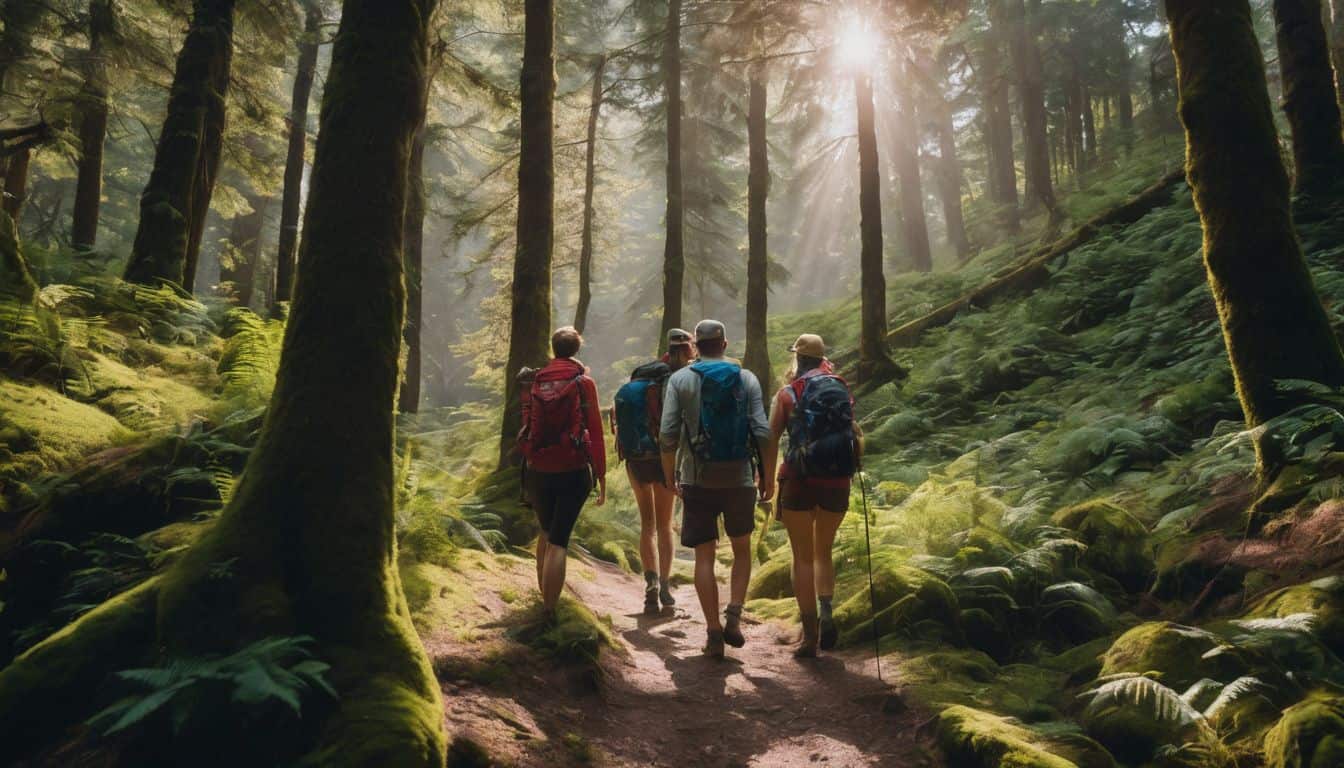
Survivalist Steven Kelly Talks about the Benefits of Learning Bushcraft Skills
As a survivalist with 18 years of experience, I can tell you that learning bushcraft skills is incredibly beneficial. Not only does it teach you important survival techniques, but it also develops crucial life skills.
When I first started learning bushcraft skills, I had no idea how much it would impact my life. By understanding the basics of outdoor skills like navigation, shelter building, and firemaking, you gain a sense of self-reliance and confidence in adverse situations.
Remember, these skills aren’t just for surviving in the wilderness; they can also be applied to everyday life. With increased nature awareness and primitive skills knowledge, you become more conscious of your surroundings and develop a deeper appreciation for the natural world around you.
Learning bushcraft skills has numerous benefits that extend beyond survival situations. By knowing how to identify edible plants and forage for food in the wild, you gain valuable knowledge about sustainable living and reduce reliance on processed foods.
This not only saves money but also improves your overall health. Additionally, honing your campcraft abilities gives you the opportunity to disconnect from technology and reconnect with nature.
It’s amazing how spending time outdoors can improve mental wellbeing and provide a much-needed break from our fast-paced modern lives.
In conclusion, learning bushcraft skills has truly changed my life for the better. The benefits are immeasurable – from improved consciousness of my surroundings to increased self-reliance in challenging situations – these skills have equipped me with important tools that I carry with me every day.
Whether it’s navigating through unfamiliar terrain or starting a fire without matches, mastering these primitive outdoor abilities provides a sense of accomplishment unlike anything else.
So if you’re looking to enhance your survival capabilities or simply connect with nature on a deeper level, I encourage you to explore the world of bushcraft skills.”.
Why the UK Government Should Encourage Bushcraft & Outdoor Skills in Schools
The inclusion of bushcraft and outdoor skills in schools is essential for the physical fitness improvement and mental wellbeing enhancement of students. Read on to discover why these skills are crucial for the next generation’s development.
Physical fitness improvement
Practicing bushcraft and outdoor skills can greatly improve your physical fitness. Engaging in activities like orienteering, animal tracking, gardening, tree tapping, and fire building requires physical strength and stamina.
These activities provide a good amount of exercise that can help prevent obesity and promote overall health. Regular physical activity also helps with growth, development, and academic performance.
By engaging in outdoor activities, you not only learn valuable survival skills but also improve your fitness levels. So why not get outside, explore nature, and enhance your physical well-being through bushcraft and outdoor skills?.
Mental wellbeing enhancement
Learning bushcraft skills is not only beneficial for survival situations but also for enhancing mental wellbeing. Spending time in nature and engaging in outdoor activities has been linked to improved mood, mental health, and emotional well-being.
This is because being in nature promotes mindfulness, reduces stress levels, and provides a sense of calmness. Additionally, physical exercise through bushcraft activities can further improve mental health by reducing conditions like anxiety and depression while boosting overall cognitive function.
By learning bushcraft skills, you not only develop practical survival abilities but also nurture your psychological wellbeing through the therapeutic power of nature.
Ten Ways to Boost Your Bushcraft Skills Through the New Year
Discover practical tips and techniques to enhance your bushcraft skills in the coming year. From tree and plant identification to campfire cookery, these strategies will help you thrive in the wilderness.
Don’t miss out on this opportunity for growth and adventure! Read more now.
Little and often practice
As a survival enthusiast, I know that practicing bushcraft skills is important for success. One key principle to remember is to practice little and often. By devoting small amounts of time on a regular basis, you can steadily improve your abilities in outdoor survival skills.
When it comes to bushcraft, consistency is key. Taking the time to practice various techniques, such as fire building and navigation skills, on a regular basis helps reinforce your knowledge and muscle memory.
Whether it’s starting a fire using different methods or honing your ability to read maps and compasses, practicing in small increments allows you to build upon what you’ve already learned.
Additionally, little practice sessions can be incorporated into your daily routine without overwhelming you. You can spend just a few minutes each day working on knot tying or sharpening your knife enough to shave with.
These consistent efforts add up over time and contribute greatly towards improving your overall bushcraft skills.
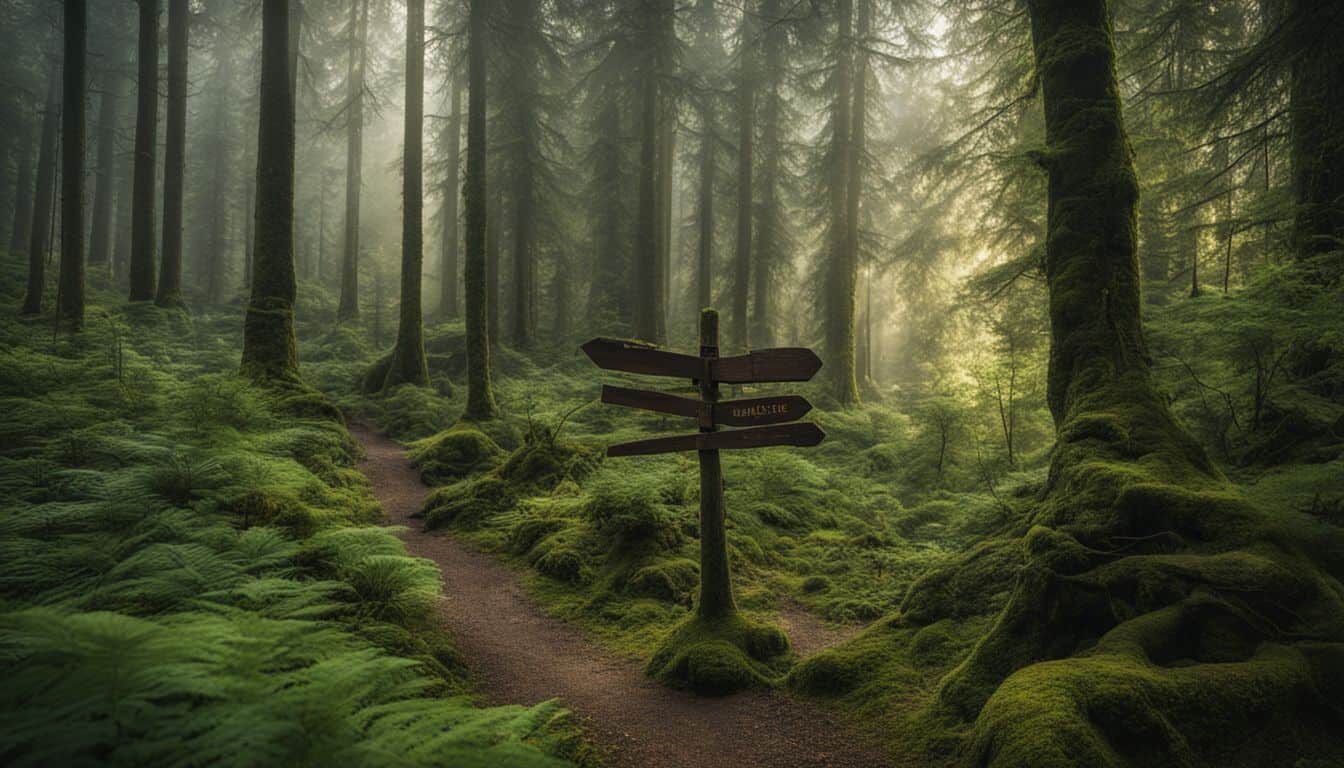
Working on weaknesses
To become a better bushcrafter, it’s important to work on our weaknesses. By identifying the areas where we struggle or lack proficiency, we can focus on improving and mastering those skills.
For example, if you find that you have difficulty starting a fire in wet conditions, practice different techniques and gather knowledge to overcome this challenge. Similarly, if you struggle with knot tying, dedicate some time each week to learning and practicing different knots until you become proficient.
Remember, by acknowledging and working on our weaknesses, we can grow as bushcrafters and enhance our overall survival abilities.
Setting realistic goals
Setting realistic goals is crucial for achieving success and reaching our full potential. Whether it’s learning bushcraft skills or any other area of life, setting achievable and specific goals provides motivation, clarity, and a clear path to follow.
When we set SMART goals (Specific, Measurable, Achievable, Relevant, Time-Bound), we give ourselves the best chance of success. By breaking down our larger objectives into smaller milestones, we can track our progress and stay on course.
So as we embark on a new year filled with opportunities for growth and learning, let’s take the time to set realistic goals that will lead us closer to becoming the survival enthusiasts we aspire to be.
Focusing on processes and results
When it comes to boosting your bushcraft skills, it’s important to focus on processes and results. By breaking down the different aspects of bushcraft and setting achievable goals, you can track your progress and see tangible improvements over time.
For example, you can work on tree and plant identification by learning to recognize different species during hikes or camping trips. Another way to hone your skills is through wild camping experiences, where you can practice setting up camp in various terrains and weather conditions.
Additionally, mastering proper water purification techniques and campfire cookery are essential for survival situations. By incorporating these processes into your regular practice routine, you’ll be able to measure your growth as a bushcrafter while enjoying the journey of learning new skills.
Areas to work on during the year
Throughout the year, there are several areas to focus on in order to improve your bushcraft skills. First, make it a habit to practice a little bit every day. Even just a few minutes of practicing different skills can make a big difference over time.
Next, identify and work on your weaknesses. Whether it’s fire building, tree and plant identification, or campfire cookery, focusing on improving these areas will help you become more proficient overall.
Setting realistic goals is another important aspect of skill improvement. By setting small achievable goals for yourself, you’ll have something to strive for and track your progress along the way.
Additionally, instead of only focusing on the end result, pay attention to the processes involved in each skill. Understanding how things work and being able to adapt your techniques accordingly is key.
One specific area that deserves attention is tree and plant identification. Being able to recognize different species can be incredibly helpful when it comes to finding food sources or identifying potentially harmful plants in the wilderness.
Furthermore, gaining experience through wild camping can provide practical knowledge that cannot be learned from books alone. Set aside time throughout the year for overnight trips where you rely solely on what nature provides.
Tree and plant identification
In bushcraft, being able to identify trees and plants is a crucial skill. It allows you to know which ones are safe to eat or use for medicinal purposes. Urban botany can be a great way to practice and expand your knowledge in identifying useful plants.
It’s fascinating to learn how plants adapt to their environment by producing toxins and poisons as a defense mechanism against predators. And let’s not forget the wide variety of food products that plants provide, like vegetables, fruits, seeds, and edible oils.
For example, did you know that sycamore trees have medicinal uses? So take the time to study and learn about the different types of trees and plants around you – it could be a lifesaver in the wild!
Wild camping experience
Wild camping is an incredible experience that allows you to connect with nature in a unique and adventurous way. It is considered one of life’s greatest pleasures, giving you the freedom to explore the wilderness and create lasting memories.
However, to have a successful camping experience, it is crucial to have good planning and organizing skills, as well as knowledge about camping safety. Core bushcraft skills like fire-craft, water purification methods, shelter building techniques, and knife handling are fundamental for wild camping.
By learning these skills and practicing them in the great outdoors, you can truly make the most out of your wild camping experience.
Proper water purification knowledge
Water purification is a crucial skill to have when it comes to survival and bushcraft. Knowing how to purify water ensures that you have access to safe drinking water in the great outdoors.
One method is water distillation, which removes contaminants and makes the water safe for consumption. It’s also important to know how to purify saltwater, as this can be a valuable skill if you find yourself stranded near an ocean or sea.
Additionally, understanding different purification methods and techniques for treating alternative water sources is essential for your overall survival abilities. So, by developing proper water purification knowledge, you are better equipped to stay hydrated and thrive in outdoor settings.
Campfire cookery
Cooking over a campfire is an essential skill for anyone interested in bushcraft and outdoor living. It’s a way to connect with nature while enjoying delicious meals. When starting out, it’s best to begin with simple recipes and gradually progress to more elaborate ones.
Remember, anything that can be cooked at home can also be cooked in the woods. Campfire cookery allows you to make use of the resources around you while honing your survival skills.
So gather your ingredients, light up the fire, and get ready for some tasty wilderness cuisine!
Incorporating wild foods
Incorporating wild foods is a crucial part of learning bushcraft skills. When you’re out in the wilderness, being able to find and gather edible plants and mushrooms can help ensure your survival.
Additionally, foraging for wild food provides important nutrients that can have positive effects on brain function and cognitive decline over time. It’s not just about sustenance though; exposure to nature and incorporating wild foods has numerous benefits.
It can improve attention, reduce stress, enhance mood, and decrease the risk of illness. So when it comes to mastering bushcraft skills and thriving in the wild, incorporating wild foods is definitely something you should focus on.
Conclusion on Benefits of Learning Bushcraft Skills
In conclusion, learning bushcraft skills can bring many benefits to your life. From increased awareness of your surroundings to self-reliance in tough situations, these skills are invaluable.
By practicing and setting achievable goals, you can enhance your physical fitness and become more resourceful. So start learning bushcraft skills today and experience the success they bring!
FAQs on Benefits of Learning Bushcraft Skills
1. What are bushcraft skills?
Bushcraft skills are outdoor survival and wilderness living techniques that involve knowledge and proficiency in activities such as fire making, shelter building, foraging, navigation, and basic first aid.
2. How can learning bushcraft skills benefit me?
Learning bushcraft skills can provide you with the ability to survive and thrive in the outdoors, increase your self-reliance, build confidence, enhance problem-solving abilities, deepen your connection with nature, develop a sense of accomplishment, and foster resilience.
3. Can anyone learn bushcraft skills?
Yes! Anyone can learn bushcraft skills regardless of age or previous experience. It is important to start by acquiring basic knowledge from reliable sources and gradually practice and refine your skills over time.
4. Are there any risks associated with practicing bushcraft?
While practicing bushcraft does come with potential risks due to its outdoor nature (such as injuries or getting lost), these risks can be mitigated through proper training, preparation, planning ahead before venturing into unfamiliar environments, using appropriate safety equipment like first aid kits and navigation tools when necessary.
5. Do I need special equipment to learn bushcraft?
No special equipment is required to start learning basic bushcraft skills. However having some essential tools like a knife or multi-tool along with suitable clothing for different weather conditions would be helpful in practicing certain techniques effectively while maintaining personal safety during outdoor activities.

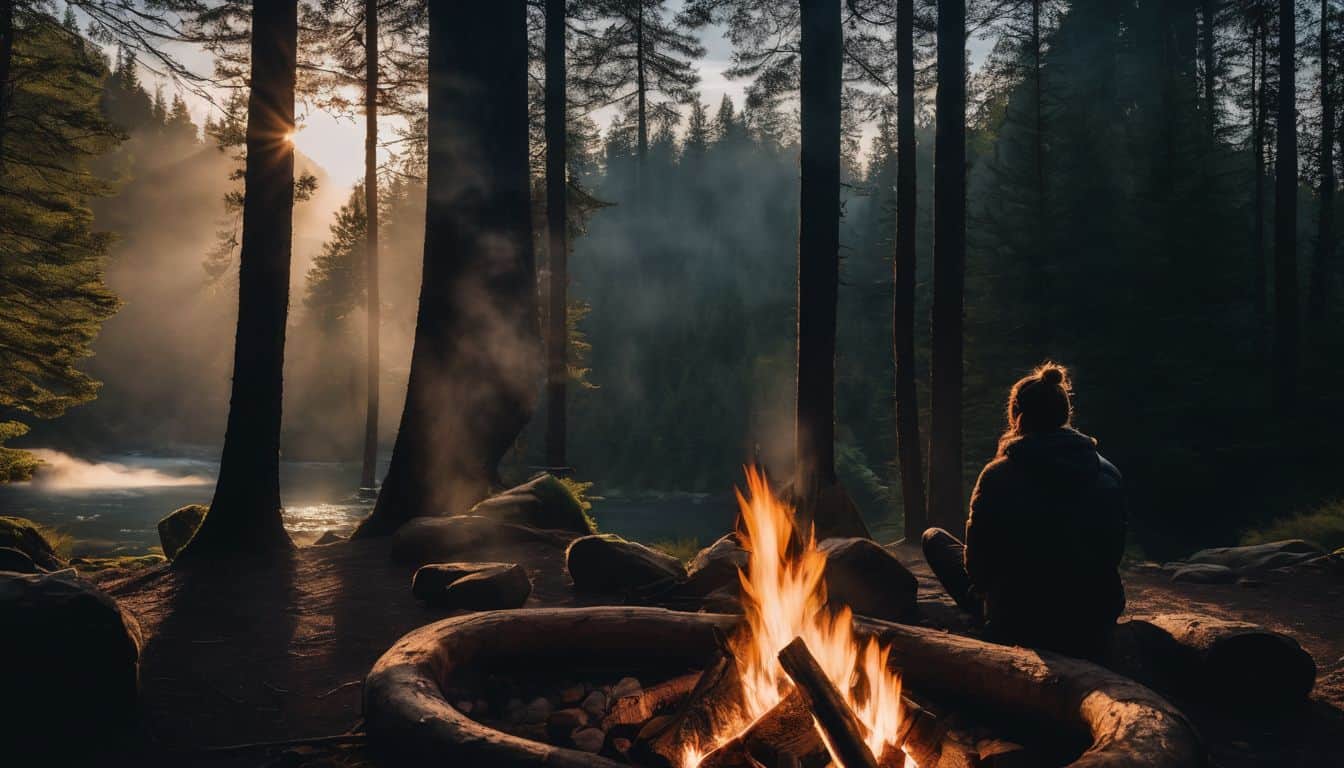

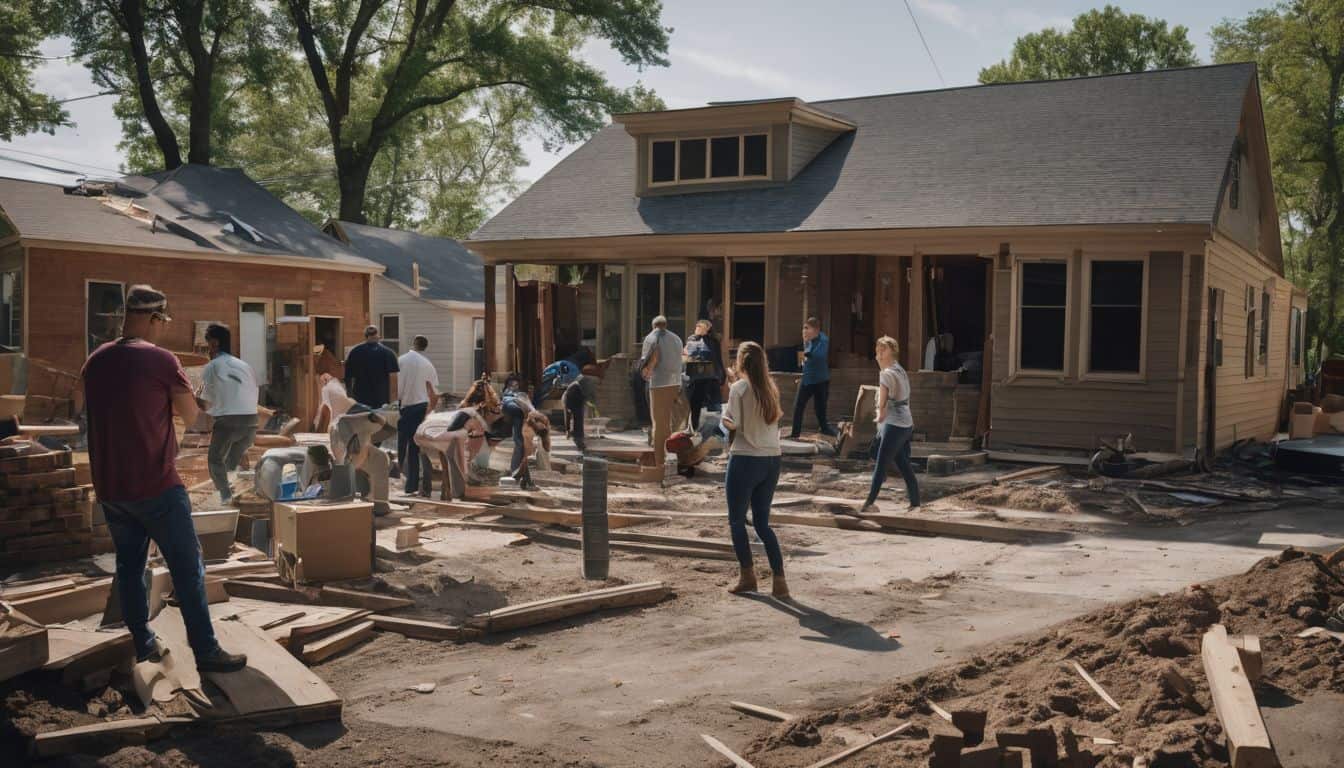
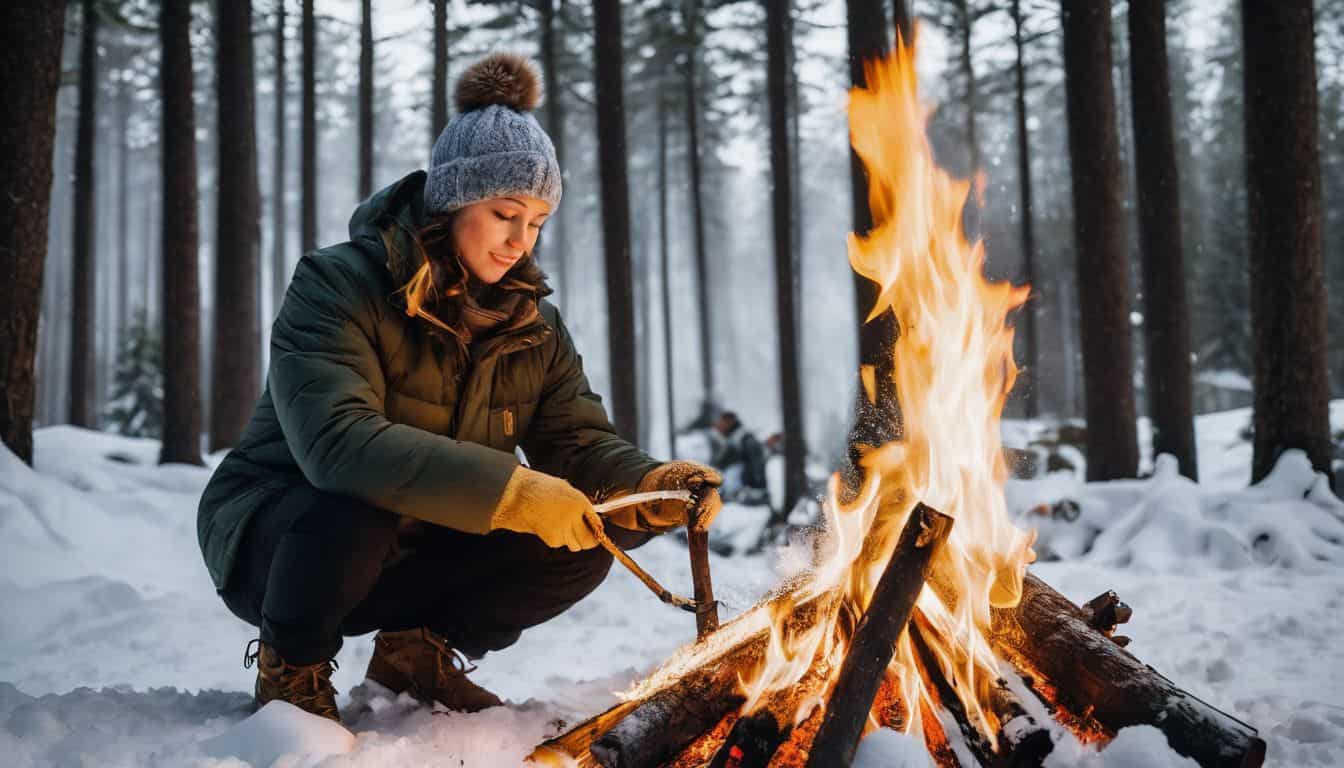
Leave a Reply